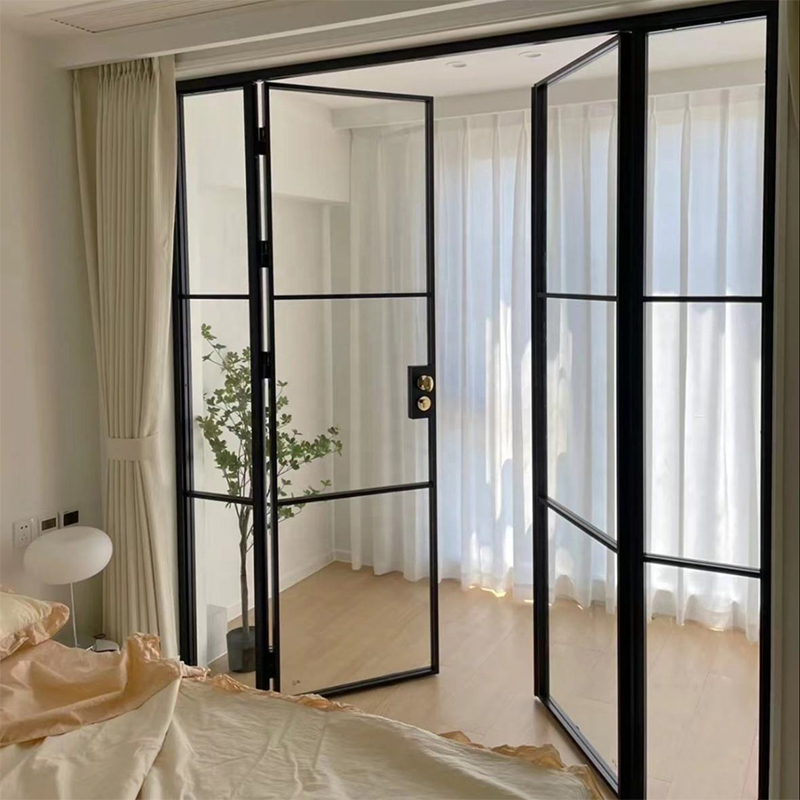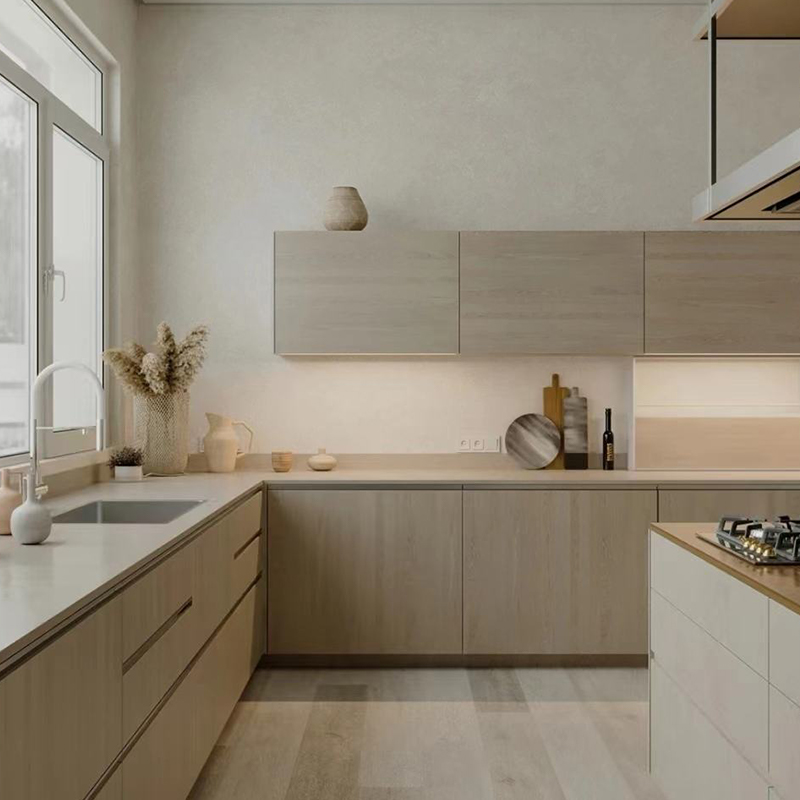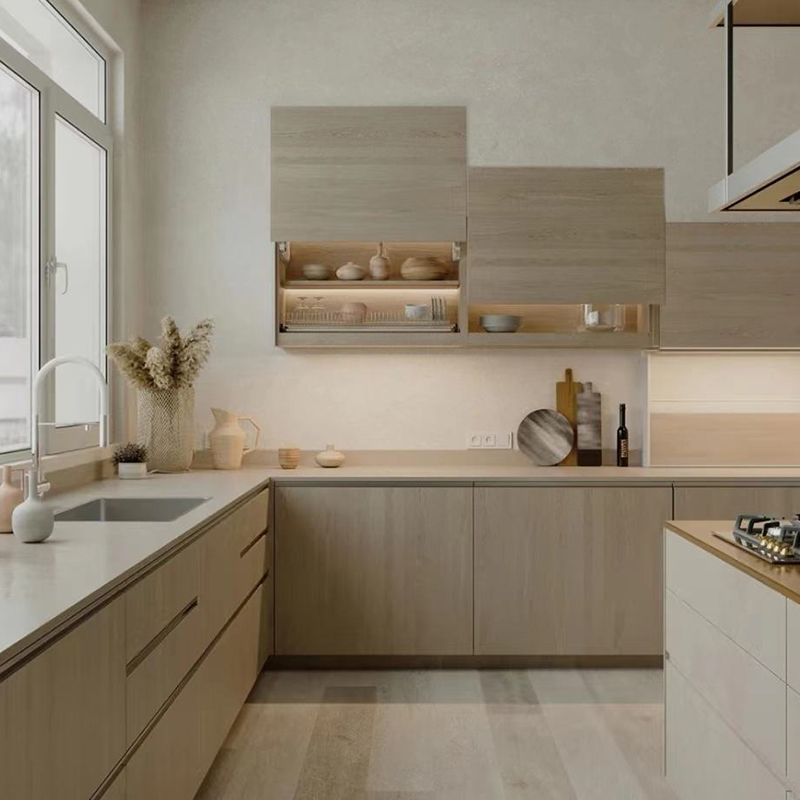-
 Industry News
Industry NewsSliding Glass Doors: Take Advantage of Space and Light in Your Home
Wholesale Supply Sliding Glass Doors Producer in China In the contemporary home design landscape, s...
-
 Industry News
Industry NewsIron Gates for Courtyard: A Protective Barrier with Style
China OEM/ODM Iron Gates For Courtyard Supplier Factory In the realm of home design and security, i...
-
.jpg) Industry News
Industry NewsWood Kitchen Cabinets: Elevating Your Kitchen's Visual Appeal
Custom Design Wood Kitchen Cabinet Producer Factory A kitchen is often the heart of the home, where...
-
 Industry News
Industry NewsSecurity Steel Door: Combining Safety with Aesthetics
High Quality Custom Security Steel Door Manufacturer In the world of home and commercial security, ...
Furniture Doors Manufacturer
-
HOMELY Kitchen Cabinet Wall Cabinet and Base Cabinet Kitchen cabinet carcase material: Melamine / MDF board/plywood...
-
PVC Kitchen Furniture Wall Mounted Custom Kitchen Cabinet Full Set Home
HOMELY Kitchen Cabinet Wall Cabinet and Base Cabinet Kitchen cabinet carcase material: Melamine / MDF board/plywood... -
Kitchen Furniture Wood Kitchen Cabinet Organizer and Storage Set
HOMELY Kitchen Cabinet Wall Cabinet and Base Cabinet Kitchen cabinet carcase material: Melamine / MDF board/plywood... -
Furniture Wood Storage Kitchen Cabinet With Multi-Tiered Drawers
HOMELY Kitchen Cabinet Wall Cabinet and Base Cabinet Kitchen cabinet carcase material: Melamine / MDF board/plywood... -
Wooden Luxury Modern Villa Home Anti-Greasy Kitchen Cabinet
HOMELY Kitchen Cabinet Wall Cabinet and Base Cabinet Kitchen cabinet carcase material: Melamine / MDF board/plywood... -
Contemporary Furniture Set Melamine Kitchen Wall Cabinets
HOMELY Kitchen Cabinet Wall Cabinet and Base Cabinet Kitchen cabinet carcase material: Melamine / MDF board/plywood... -
New Design Modern Custom Acrylic Wood Kitchen Cabinet
HOMELY Kitchen Cabinet Wall Cabinet and Base Cabinet Kitchen cabinet carcase material: Melamine / MDF board/plywood... -
Modern Interior Veneer Painting Door for House Office Toilet Bathroom
Advantages: 1. Customized design available, OEM & ODM available 2. Environmental protection, 100% recyclable, ... -
Wall Mounted Hang Sliding Cross Laminated Interior Melamine Wood Door
Type: Polymer Application: Apartment, home use door Main Material: Solid Wood Door Material: MDF Feature: Wate... -
PVC Molded Bathroom Oval Shape Front Door Interior PVC Wood Door
Design Style: Modern After-sale service: Online technical support, Onsite Installation, Onsite Training, Onsite... -
Interior MDF Wood WPC Door for Hotel Bathroom Kitchen Living Room
Standard Size: Standard size 2050*900 or can be customized Door Leaf Size: Height:1900- 2100mm, Width: 700 -900mm P... -
Wooden Single Main Door MDF Laminated Sliding Door Design Interior Barn Door
Door Material: MDF Warranty: 2 years Feature: Sound Insulation Surface Finishing: Finished Opening Method: Rolling ...
OUR BLOG
Latest Articles
Home Furniture Door Industry Knowledge Extension
What Factors Should I Consider When Choosing Doors For My Home Or Furniture To Ensure They Fit My Needs And Style?
When choosing doors for your home or furniture, several factors should be considered to ensure they meet your needs and complement your style:
1. Functionality: Determine the primary function of the door. Is it an exterior door meant for security and insulation, or an interior door for privacy or aesthetics? Choose doors that align with their intended purpose.
2. Material: Doors come in various materials such as wood, metal, fiberglass, or composite. Each material has its own benefits. Wood offers a classic, warm look, while metal provides durability and security. Consider the material's maintenance requirements and how it fits your style.
3. Style and Design: Your doors should match the overall design theme of your home or furniture. Consider factors like the architectural style, color, and finish. Whether you prefer modern, traditional, rustic, or minimalist aesthetics, choose doors that blend seamlessly.
4. Security: For exterior doors, prioritize security features like strong locks and deadbolts. Ensure they meet local safety standards and are appropriate for your area's security needs.
5. Energy Efficiency: If the door is exterior-facing, consider its energy efficiency. Look for doors with good insulation properties to reduce heating and cooling costs.
6. Size and Configuration: Measure the door's dimensions carefully to ensure it fits the frame. Consider whether you need a single or double door, as well as any sidelights or transoms for added style and natural light.
7. Budget: Determine your budget for doors. High-quality doors often come with a higher price tag, but they can be a valuable long-term investment. Balance your budget with your desired features and style.
8. Maintenance: Some materials require more maintenance than others. Wooden doors may need regular painting or staining, while metal or fiberglass doors are often easier to maintain.
9. Sound Insulation: If noise reduction is important, look for doors with sound-insulating properties. Solid-core doors or those with acoustic seals can help reduce noise transmission between rooms.
10. Warranty: Check the manufacturer's warranty for the doors. A good warranty can provide peace of mind in case of defects or damage.
11. Local Regulations: Be aware of local building codes and regulations regarding door installations. Ensure your chosen doors comply with these standards.
12. Environmental Impact: If sustainability is a concern, look for doors made from eco-friendly materials or those with certifications like Energy Star or FSC (Forest Stewardship Council).
By carefully considering these factors, you can select doors that not only fulfill their functional requirements but also enhance the aesthetics and overall appeal of your home or furniture.
What Specific Solutions Do Professional Door Manufacturers Offer For Different Markets And Application Areas?
Professional door manufacturers offer a wide range of specific solutions tailored to different markets and application areas to meet the diverse needs of customers. Here are some examples of the solutions they provide:
1. Residential Doors:
- Entrance Doors: High-quality entry doors with various materials, finishes, and styles to enhance curb appeal and security for residential homes.
- Interior Doors: Stylish and functional interior doors available in different designs, including panel, flush, French, and sliding doors, to complement interior spaces.
- Patio and Sliding Doors: Doors designed for easy access to outdoor areas, offering energy efficiency and security while maximizing natural light.
2. Commercial Doors:
- Commercial Entry Doors: Sturdy and secure doors suitable for retail shops, offices, and commercial buildings, designed for heavy traffic and durability.
- Fire-Rated Doors: Fire-resistant doors that meet safety regulations and provide protection for commercial spaces.
- Access Control Doors: Doors equipped with access control systems, card readers, and electronic locks for enhanced security.
3. Industrial Doors:
- Roll-Up Doors: Heavy-duty roll-up doors for warehouses, factories, and industrial facilities, designed for efficient access and security.
- High-Speed Doors: Rapid-opening doors that help maintain controlled environments and improve workflow efficiency.
- Soundproof Doors: Doors engineered to reduce noise transmission in industrial and manufacturing settings.
4. Institutional Doors:
- Healthcare Doors: Hygienic and durable doors for hospitals and healthcare facilities, including hermetic, sliding, and antimicrobial doors.
- Educational Doors: Doors for schools and universities, designed for safety and accessibility while withstanding heavy use.
- Government and Public Buildings: Doors compliant with security standards and access control requirements for government and public institutions.
Professional door manufacturers collaborate with architects, builders, and contractors to ensure that their solutions align with the functional and aesthetic demands of various markets and application areas. These tailored offerings encompass a broad spectrum of door types, materials, and features to meet the specific needs of each customer and project.
-
mattie@homely-cn.com
0086 15158911868 (Mob/whatsapp/wechat) -
jessica@homely-cn.com
0086 15088234517 (Mob/whatsapp/wechat) -
 No.6,yinggui south road,chenxi industrial area,Yongkang,JinhuaZhejiang,China.
No.6,yinggui south road,chenxi industrial area,Yongkang,JinhuaZhejiang,China.
Copyright © 2023 Yongkang Homely Doors Co., Ltd.All Rights Reserved.

mattie@homely-cn.com
jessica@homely-cn.com

0086 15158911868
0086 15088234517
-


 عربى
عربى
.jpg)
.jpg)


.jpg)
.jpg)
.jpg)
.jpg)
.jpg)
.jpg)
.jpg)
.jpg)
.jpg)














